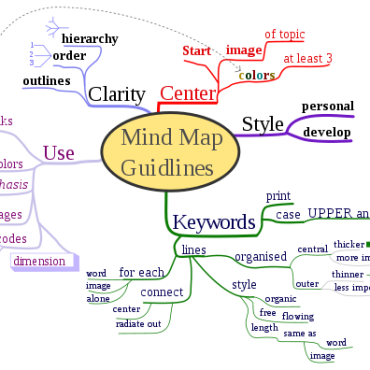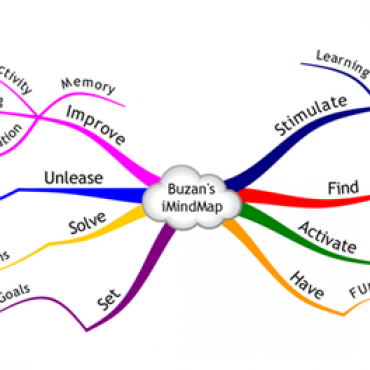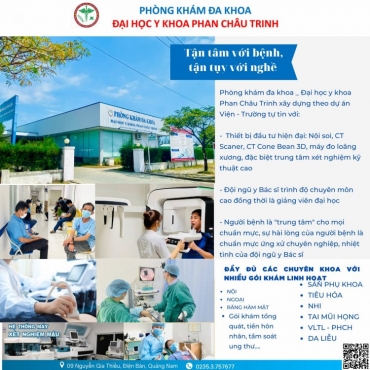- Healthcare
- Phan Chau Trinh University Hospital
- Phan Chau Trinh University Polyclinic
- TAM TRI QUANG NAM GENERAL HOSPITAL
- Tam Tri Hong Ngu International Hospital
- Tam Tri Cao Lanh General Hospital
- Tam Tri Đong Thap General Hospital
- Tam Tri Nha Trang General Hospital
- Tam Tri Sai Gon General Hospital
- Tam Tri Đa Nang General Hospital
Contact Admission
Development history of world medicine
Development history of world medicine
Medicine is a field of applied science related to the art of healing, encompassing many methods of health care to maintain and restore the body from prevention and treatment.
Up to now, many researchers believe that the history of medicine may have been born with the history of disease arose and the history of the physician. In the cave of the Three Brothers (La Grotte des Trois Frères) people have found a painting about 17 thousand years ago depicting a retired witch in treatment.
Medicine develops over the years and by regions, quickly or slowly depending on the development of culture, economy, civilization and characteristics of each nation.
There are many ways to analyze the medical history of the world: analysis by region, analysis by time, analysis based on the advancement of medical approaches and research and development. This last method is simpler and clearer. According to this method of analysis, researchers analyze the history of world medicine into four stages:
1- Stage of Spiritual Medicine (Spiritism Medicine)
In the early Roman times, the ancient Greeks believed that sickness was "a punishment of the gods" and that healing was a "gift from the gods". It was realized that the mind played a role. is important in healing, and it can also be the sole cause of the disease.
In that ancient period, Roman medicine had many mythological properties. Whenever sick, the Romans went to the temple to pray to the gods: Minerva, Diana, Hygiea ...
In Mesopotamia and Egypt, in ancient times, in the period 3500 - 1500 years BC developed early medicine. In this early medicine, the supernatural was present in all aspects of disease and healing: Sickness and catastrophe were attributed to supernatural agents: gods, demons ... In this period diagnosis, prevention and treatment of diseases all need magic, worship, praying ... The cause of the disease is said to be due to demons, gods, gods ... Witches, shaman (people) , the magician ... are the ones who make magic, make offerings ... to "cure" people in the area. (first)
In the East: The Indian region has very little documented record. The Vedas contain documents written between 1500 and 1000 BC showing that physicians, seen as gods, fought against the devil, performed mystical rituals against sickness, Disease. In China, the researchers found no evidence of medical development during this period. They only find very faint traces in the folktales.
Spiritual Medicine (VHW) is a healing phenomenon based on mystical powers. During this period it was believed that illness was caused by divine rebuke. When sick, people rely on "teacher Mo", "priest" to pray to the gods for recovery. (2)
The history of medicine in this period is recorded very little and ambiguous. Medical advances during this period developed in isolated and isolated regions. Because there is not much information exchange and no medical school, progress has not been much and asynchronous for a long time.
Today there are still many places in the world where this medical phase exists, including Vietnam.
Medicine in this period is ineffective because it is based on superstition, so there has been no significant progress in the long term. Gradually it has been replaced by more progressive, more effective medicine, the Experimental Medicine Stage. This substitution took place on separate regions and, thanks to some outstanding, spontaneous characters in each place.
2- Stage of Experimental Medicine (Empiric Medicine)
This is the period when the brilliant, intelligent physicians scattered in many parts of the world accumulate their own experiences, bring them into the examination and treatment to make treatment more effective. They observe, accumulate experience and heal based on personal experience or passed down. This period developed strongly in Central - India.
In this stage people rely solely on experience for diagnosis and treatment. The physician noted: People with liver pain have jaundice. When you have jaundice (liver pain), the pill A will decrease. Physicians could not explain why liver pain was jaundice, or some doctors tried to explain in their own words (not sure if it was correct or not). Besides, this is just personal experience in some cases, so it is easy to be subjective and misleading.
Experienced medicine has long been recorded in many ancient civilizations such as India, Egypt, Greece or China. (1), (3), (4), (5)
-
Ancient Egyptian Medicine: The pyramid was built in this period over a period of hundreds of years and more than tens of thousands of working slaves. At that time, there were frequent accidents, so trauma treatment techniques were formed from that. During this period, the Egyptian medical profession organized into specialties according to the body parts such as: Ophthalmology, trauma, mummification ... and had made remarkable progress.
- Mesopotamian medicine: In this period, some diseases were known to be transmitted by mosquitoes. Medicinal drugs used in this period were garlic, canola, bitter melon, sulfur, and lychee.
Ancient Chinese Medicine: Acupuncture was formed and developed with the advent of the yin-yang theory and the five elements. Many famous medical works such as Shen Nong Manuscript and Emperor Inner Sutra were born during this period. Endocrinology is a book that enumerates theories and practices of medicine. The famous Han Chinese physicians in the early AD released the book Shen Nong manuscript scriptures. A comprehensive book of medicinal herbs, including 365 tonic and medicinal herbs such as asthma, mercury for skin diseases ...
Hua Tuo (145-208), is a famous physician at the end of the Eastern Han Dynasty and early Three Kingdoms in Chinese history. He is praised as a famous Divine Medicine not only in China but also in co-cultural countries such as Vietnam, Japan and Korea, considered one of the ancestors of Dong Y. Truong Trong Canh was proclaimed Kien An tam Than medical. Bien Thu was a famous doctor of the Warring States period and is considered one of the earliest recorded names in Chinese history records. Legend has it that he was the person who gave birth to the method of taking the pulse, who laid an important premise for Oriental medicine. Due to their fame and miraculous accounts, Bien Thuoc and Hua Da, Truong Trong Canh and Ly Thoi Tran were later proclaimed "Ancient China of the Four Great Medicine". His works also include "Bien Thuoc Kinh Noi", "Bien Thuoc's Foreign Business" and "Kinh Can Kinh".
Acupuncture has also begun to develop. In the eleventh century, there was Mr. Vuong Duy Nhat who cast bronze statues to carve the points into it. Song Dynasty medicine, from the thirteenth century, appeared book "Tay Oan Luc" is the first book talking about forensic. In the sixteenth century, the Chinese people knew how to get beans.
Ancient Roman and Greek medicine appeared:
Claudius Galenus (129–200 / 217), also known as Galen, was a famous Roman Greek physician and philosopher and perhaps the most talented Roman medical researcher. His theories dominated and influenced western medicine for more than a millennium. His explanation of anatomic medicine was performed on monkeys (due to the fact that human anatomy was not allowed at the time), but it did not pay much attention until the printed descriptions and illustrations of the anatomy. Human anatomy was published by Andreas Vesalius in 1543. His explanation of heart, arterial and venous activity lasted until William Harvey introduced in 1628 that blood circulating in the body with the heart acting as a pump. By the 19th century medical students were still studying Galen to study some of his points of view. Galen performed several nerve ligation experiments to explain the theory that the brain controls all muscle movements involving the peripheral and cranial nervous systems.
Galien (131-205) has many contributions to anatomical research of the musculoskeletal system, bone, joint, and nerve.
The period of Medicine experienced in developing all over the world, especially in the East, Central-India, is often called Eastern Y. (1), (3), (5).
For many different reasons: Based on the personal experience of some seeing drugs, medical problems are not explained by scientific reasoning, the medical knowledge in this period does not meet the needs. practically heal people and help the medical industry develop further. Taking place during the feudal period, this medicine was intended to serve the king and the people of the upper class, people in the court, so development was limited.
The economic development in the East, after a long boom, began to slow down, giving way to the industrial and scientific development in the West. Medicine also turned in another direction: Scientific Medicine, the medical phase illuminated by the light of science.
3- Scientific Medicine or Experimental Medicine: (1), (2), (3), (4) (6)
-
Hyppocrate (460-377 BC) is considered to be the ancestor of medicine which is inherited today as Western or Western medicine. He is one of the most medically valuable and arguably the inventors of experimental medicine. He is also credited as the first to founded the medical school, as well as the composer of the Hippocrates oath (later added by Celsus). Galen laid the development groundwork for medical reasoning. After the fall of the Roman empire and the beginning of the Middle Ages, the healers in the Muslim world took over and made a great breakthrough for the medical profession thanks to the support from an Arabic translation of works. by Hippocrates and Galen. Many well-known pioneers are Arabs, such as Avicenna being called "the ancestor of modern medicine", Mr. Abulcasis is the ancestor of surgery, Mr. Avenzoar is the patriarch of experimental surgery, Mr. Ibn al. -Nafis and Mr. Averroes are ancestors of circulatory physiology, Mr. Rhazes is the founder of pediatrics. They still left an influence on Western medicine to the Middle Ages.
The basic views and practices of Hyppocrate on medicine are as follows:
Separating religion and medicine, building medicine on the basis of material, based on observing specific signs of disease. Sickness is a natural phenomenon of the body, with no magical power to cause.
The basic principle of healing is to support the body's natural resistance, avoiding everything that interferes with the patient's ability to self-heal and the natural health. Hyppocrate's treatment is very cautious "Do not do anything daring. The physician, even if he does not do anything for the patient, must not do any harm to them".
He proposed the theory of environment, people live in no isolation, but want to or not, they still have to obey the laws of nature. The role of the physician is not to be naturally opposed, but to create favorable conditions for nature, for the body to fight disease. The eating and drinking have been studied very carefully, the diets are clearly written. He is also a nutritionist, a biologic toilet.
Hyppocrate and his students have known tuberculosis, cancer, anemia, goiter, "women's blue disease", gallstones, congestion, epilepsy, paralysis, hysteria, mental disorders, sugar disease respiratory, digestive, liver, spleen, kidney, urinary, genital, bone, skin, ENT, food allergies.
Hyppocrate is a surgeon who operated and cured broken bones, misaligned joints, treated head wounds. The surgical tools are very rich: scalpels, probes, curettors ...
About medicine: using opium, poisons, sleeping pills, sedatives, lead salt, acid salt, copper salt, ointment for treatment.
- Claude Bemard (1813-1873) founder of experimental medicine, unifying physiology, pathology and therapy. He studied sympathetic nerves, the sugar-forming function of the liver, the role of pancreatic juice in digestion. Regarding his viewpoints and methods, he wrote: "Knowing and not knowing are two necessary scientific poles". He also emphasized the relationship between the body and the environment.
- Louis Pasteur (1822-1895) first chemist, bacteriologist. In 1879, Pasteur isolated and cultured streptococcus. Pasteur found that rabies is transmitted by a small agent not found under a microscope, opening up the world of virus discovery. As a result, he developed techniques to vaccinate dogs against rabies and treat people bitten by rabies.
- Davaine (1812-1882) and Rayet (1793-1863) in 1850 discovered charcoal bacillus.
- In 1880 Eberth discovered the typhoid bacillus.
- Robert Koch (1843-1910) in 1884 discovered tuberculosis bacillus.
- Calmette (1863-1933) and Guérin in 1921 discovered the BCG vaccine for tuberculosis.
- Louis Pasteur (1822) discovered staphylococci and streptococcus in 1890.
- In 1865 Mendel (1822-1884) experimented on plant hybridization.
- ...
During this period, physicians researched and explained medical phenomena according to science. People answer the questions: why patients with liver pain have jaundice? How does a medicine work? Physicians are also scientists who discover and prove pathogens, mechanisms of disease, and process therapeutic drugs that have a real effect on the physiological transformation of the disease. for more effective healing. From that background, scientists learn more and more deeply the sources of disease and develop suitable treatments.
The period of Scientific Medicine or Probate Medicine developed strongly in Western countries, so it is often called Western Medicine.
4- Modern Medicine Period: (6), (7), (8)
Modern medicine is a new trend that aims to establish the most effective diagnostic and treatment process by using "systematic review" and "meta-analysis". statistical. It develops thanks to the advancement of modern information science, which collects and analyzes huge amounts of data, huge normative evidence, and then disseminates it to healthcare providers or clinicians. . One problem with this "optimal" approach is that it can be seen as a dramatic approach, meaning it will make many different assessments. The Cochrane Collaboration Program report on this opinion movement in 2001 stated that out of 160 copies of the "systematic review" of Cochrane, based on at least two commenters, 21.3% was equal to the control was incomplete, 20% was ineffective, and 22.55% evidence was positive. Since then, Medicine develops to:
Evidence Based Medicine (EBM): (7), (10), (11).
Is a concept first mentioned in 1972 by Professor Archie Cochrane in his book "Effectiveness and Efficiency: Random Reflections on Health Services". According to the Working Group on Evidence Medicine at the University of Illinois, USA, YHCC is an approach in medical practice in which the clinical physician is interested in evidence supporting clinical practice and the value of that evidence.
Medicine is dubbed a science ie based on evidence, so why is there evidence medicine? Indeed, even though it is a science, the practice of medicine is never completely systematic and consistent when the diagnosis, prognosis and treatment are influenced by many psychological factors. to culture, economy and society. The physician is not a machine but a human, sometimes tired, stressed or upset, angry ... In addition, the physician is also influenced by the patient's attitude and behavior. Regarding cultural factors, in addition to the customs, norms and values belonging to the local culture, the pharmacy is also influenced by the school, the opinion of reputable or high-ranking people. facilities, etc. Socio-economic factors also affect the physician's practice such as facilities, conditions, working regulations, economic status of the patient, of the village. physician's body etc ...
Since the development of the internet, there is too much information, including information about medicine. Among those information, there are valuable information, some of little value, even false, subjective (accidental or intentional) information. Therefore, it is necessary to set up a filter system, which helps researchers to correctly select valuable information, remove false information, subjectively even deceive for bad purposes.
Evidence-based medicine is defined as a method of medical practice that is based on conscious and informed medical data in order to improve the quality of patient care.
Orthodox scientific evidence is data published in scientific journals recognized by the scientific community. Currently, only in the biomedical industry, there are at least 30,000 journals (but only about 10% are on the list of the Institute of Scientific Information - Institute of Scientific Information). With such a huge amount of information, no doctor can fully update his knowledge.
Evidence medicine requires doctors to use medical data in a "conscious and conscious way". In other words, it is not just about receiving data, the physician has to understand what the data means, and whether it is reliable or not, in order to make more objective comparisons and better decisions.
Medical research published in medical research journals is often very diverse, and appears with many unfamiliar nouns and terms. Some of the most common studies are meta-analysis, randomized controlled clinical trial (RCT, a randomized controlled clinical trial), prospective (longitudinal) study (time based study), and cross-sectional. study (one-time typical study), and case-control study (case-control study). The scientific validity of these studies is not the same. According to empirical medicine, the following studies have scientific values ranging from highest to lowest:
Textbook
Meta-analysis analysis.
A randomized controlled clinical trial (RCT). HOPE study: a typical RCT study
Longitudinal studies or prospective study
Cross-sectional studies
Case-control study
Case reports
Basic research
Personal opinion and report, editorial
To put it another way, working on an evidence-based approach is a problem-based learning process that takes place not just at one stage, but in a lifetime.
- Personalized Medicine or Precision Medicine: (8), (9).
In the first decade of the 21st century, the amazing advances in modern genetics, especially the results of stem cell research and human genome mapping, have helped scientists predict muscle response. by analyzing the patient's own genome. The trend of "personalization" in Western medicine is being awakened to form an attractive new paradigm: precise medicine.
Precision medicine or personalized medicine (PM) is simply understood as treating the right patient with the right medication, at the right dose, and at the right time. More broadly, PM can be considered as the medical care suitable for the individual characteristics, needs and preferences of each patient in all stages including: prevention, diagnosis, treatment. and follow.
In fact, this idea originated in ancient times: Hipprocrates - "father of the medical profession" - once prescribed "whoever medicine", no one like anyone, based on the specific disease that each person has . Today, modern medicine is also using the above principles, strongly supported by the achievements of genetic engineering.
PM is a medical model that proposes customized healthcare approaches, with decisions (diagnosis, prevention, care, treatment) and products (drugs, food, etc.) designed specifically for each patient is based on their own genetic information and the specificity of the disease.
Based on each person's genetic map, PM uses sophisticated and sophisticated diagnostics to come up with an accurate treatment regimen that matches the genetic characteristics of each individual at the molecular level. Currently, PM only stops at the subdivision level of patients to suggest treatments, but when the human genome map is completely decoded, PM will be more and more complete. Then, doctors can design "snug" and perfect healthcare models for each patient.
The scientific basis of PM are outstanding achievements in the field of genetic engineering, in particular the use of data from the human genome project and genetic engineering. In 1990, a global collaborative biology project called Human Genome Project - HGP was implemented with funding and management of the Department of Energy and the National Institutes of Health. The end of the human genome project is also the beginning of genomic medicine, the human genome mapping is being studied for everyday applications in medicine. Dr. Collins, director of the American Institute of Human Genome Research, said that the human genome mapping is like a textbook on medicine, offering countless new ways to support treatment and prevention for each individual. The understanding of the human genome helps create new diagnostic tools, early detection of diseases such as cancer, diabetes, hypercholesterolemia ... Doctors can determine the genetic characteristics of cells. Malignant cells have since led to a treatment based on genetic mutations. This approach promises to bring high therapeutic effect and minimize side effects. With the genetic sequence obtained, along with modern genetic techniques, it is completely possible to determine the risk of disease while the body is healthy. This is one of the premise for the development of PM, the inevitable development trend of medicine.
Thus, the development history of World Medicine from ancient times up to now has undergone many stages of development. The development of Medicine is influenced by many factors: regional customs, the mind - physiology of the nation, political regime, historical changes, economics, the development of science and the public. Technology ... Some historical researchers divide the history of medicine by region: Greek - Roman - Egyptian medicine, Chinese - Near Eastern medicine, Oriental medicine, Western medicine or by time: Ancient medicine Modern Medicine, Medieval Medicine, Modern Medicine ... However, according to us, we divide the history of development of Medicine according to the disease approach and curative direction as well as the achievements that the medical profession has achieved in the public. Effective treatment, bringing life, health and happiness to people is the most reasonable and easy to understand vision. According to this trend, the history of world medicine development can be classified into four stages:
1- Spiritism Medicine
2- Stage of Experimental Medicine (Empiric Medicine)
3- Stage of Scientific Medicine (Scientific Medicine) or Experimental Medicine (Experimental Medicine)
4- Modern Medicine Stage
a- Evidence Based Medicine.
b- Personalized Medicine or Precision Medicine
This right judgment will drive Medicine to progress faster, to serve people better.
****************
REFERENCES
1- History of Medicine: Lois N. Magner (Bản dịch tiếng Việt: BS Võ Văn Lượng), Nhà xuất bản Trẻ
2- //caodaifrance.free.fr/Trangdaidao/Html/Thonglinhhoc/Texte-VN/Lichsu_thanlinhhoc.htm
3- //sites.google.com/site/seadropblog/home/y-khoa/co-so/tam-ly-y-hoc---y-duc/lich-su-y-hoc
4- //vi.wikipedia.org/wiki/Y_học
5- //vi.wikipedia.org/wiki/Y_học_Hy_Lạp_cổ_đại
6- //www.baomoi.com/nguoi-ve-lai-dien-mao-y-hoc-la-ma-co-dai/c/4273343.epi
7- Dr.Thang (Q.Ngai): //taimuihonghue21.wordpress.com/2009/09/08/y-học-chứng-cứ/
8- Nguyễn Thành Huy: //localhost:8012/-khoa-hoc-cong-nghe/Phat-trien-y-hoc-chinh-xac-Can-su-dau-tu-tong-the-10914
9- //en.wikipedia.org/wiki/Precision_Medicine_Initiative
10- Nguyễn Văn Tuấn. Giáo sư y khoa - Viện Nghiên cứu Y khoa Garvan. Trường lâm sàng St Vincent’s. Đại học New South Wales, Sydney, Australia
11- BS Nguyễn Ngọc Hiền.
Other healthcare
- TAM TRI QUANG NAM GENERAL HOSPITAL ( 10:24 - 11/07/2023 )
- Tam Tri Cao Lanh General Hospital ( 15:08 - 20/10/2022 )
- Tam Tri Hong Ngu General Hospital ( 15:05 - 20/10/2022 )
- Phan Chau Trinh University Hospital ( 14:04 - 29/04/2022 )
- Phan Chau Trinh University Polyclinic ( 13:56 - 29/04/2022 )
- Tam Tri Dong Thap General Hospital ( 11:03 - 29/04/2022 )
- Tam Tri Nha Trang Genaral Hospital ( 10:55 - 29/04/2022 )
- Tam Tri Sai Gon Genaral Hospital ( 10:38 - 29/04/2022 )
- TAM TRI DA NANG -- PROUD TO BE YOUR FAVORITE HEALTHCARE PROVIDER ( 10:31 - 29/04/2022 )
- Microfluidic channel device for tumor chemotherapy ( 11:40 - 12/10/2017 )








